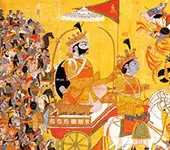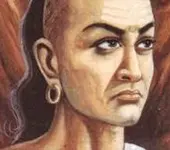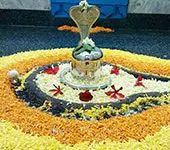40.0K
Likes
431
Comments
Recommended for you
Why people pay money and avoid standing in queue at temples
 Click here to know more..
Click here to know more..
Being in moderation is the best strategy
 Click here to know more..
Click here to know more..
Hari Dashavatara Stotram

pralayodanvadudeernajala- vihaaraanivishaangam. kamalaakaantamand'ita- vibhavaabdhim harimeed'e.....
Click here to know more..
English Topics
Shiva
Click on any topic to open
- 81 Lessons of Maya - Narada's Tale and Cosmic Design
- 80 Rudraksha - A Guide to Its Types and Benefits
- 79 The Power of Rudraksha
- 78 Eight Forms Of Lord Shiva
- 77 Which Type Of Bhasma You Should Wear?
- 76 Various Types Of Shiva Lingas
- 75 Can We Take Prasada Offered To Shiva?
- 74 The Significance of Worshiping Shiva Devotees
- 73 What Is Above And Below Kalachakra
- 72 How To Go Beyond The Reach Of Yamaraja
Please wait while the audio list loads..
30
Ganapathy
Shiva
Hanuman
Devi
Vishnu Sahasranama
Mahabharatam
Practical Wisdom
Yoga Vasishta
Vedas
Rituals
Rare Topics
Devi Mahatmyam
Glory of Venkatesha
Shani Mahatmya
Story of Sri Yantra
Rudram Explained
Atharva Sheersha
Sri Suktam
Kathopanishad
Ramayana
Mystique
Mantra Shastra
Bharat Matha
Bhagavatam
Astrology
Temples
Spiritual books
Purana Stories
Festivals
Sages and Saints
26
15
13
Copyright © 2024 | Vedadhara | All Rights Reserved. | Designed & Developed by Claps and Whistles
